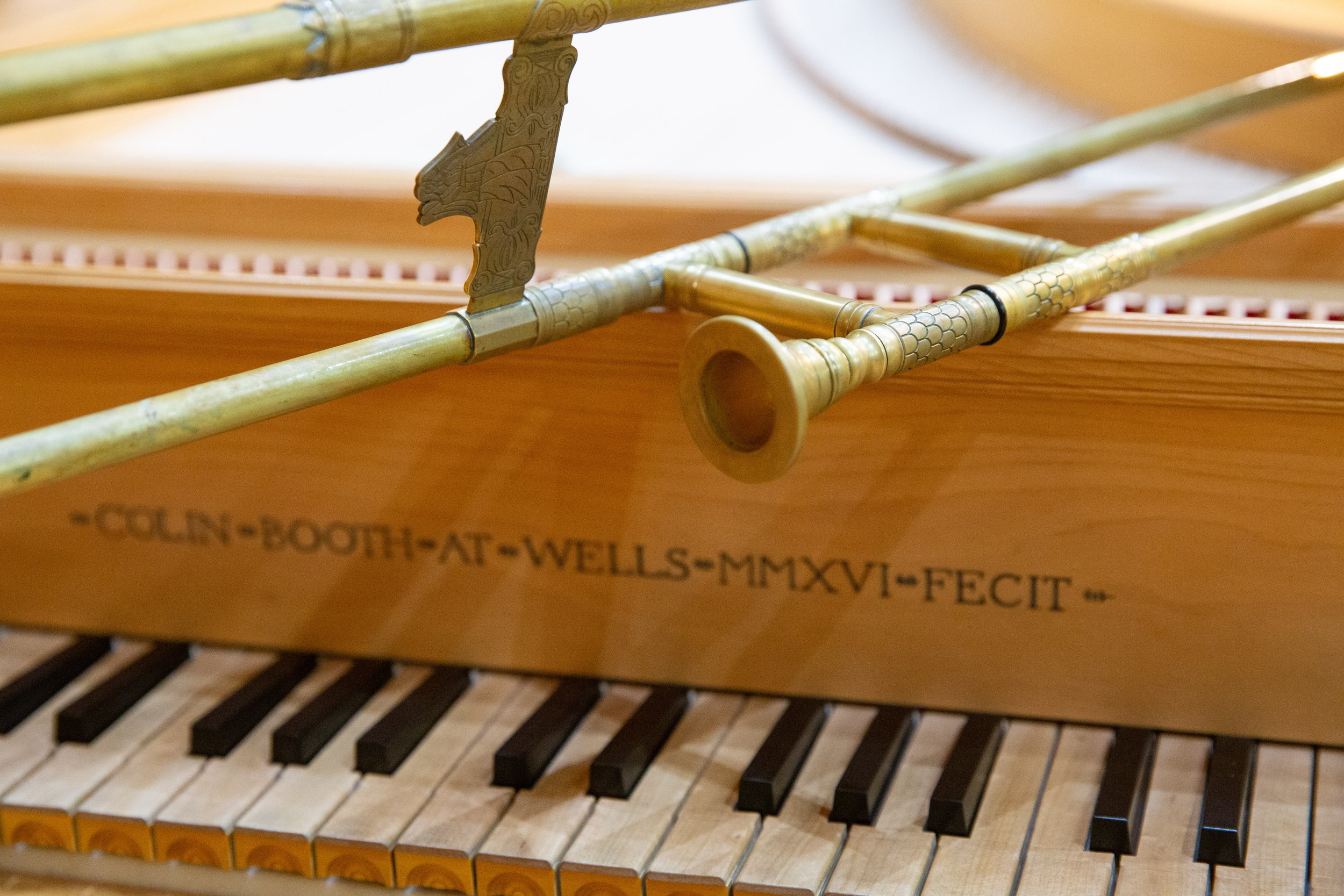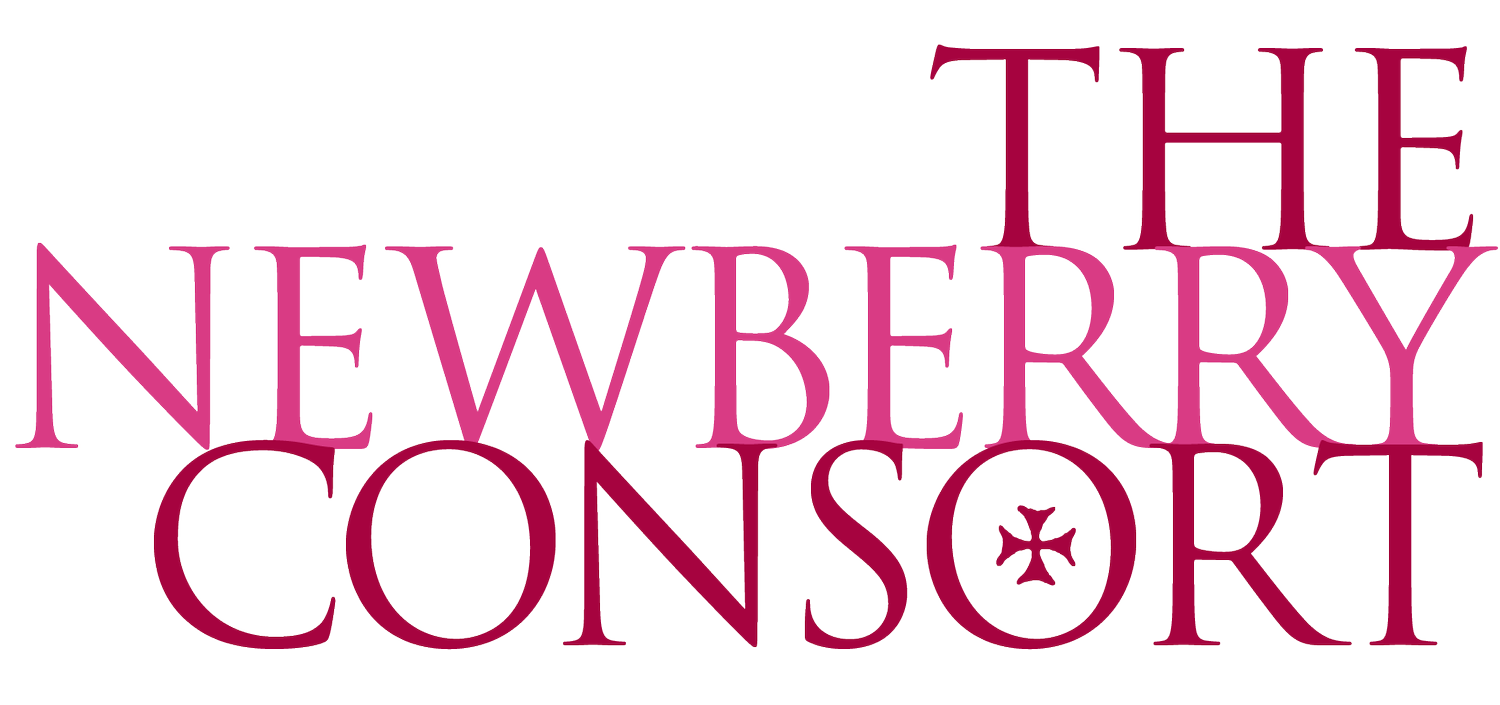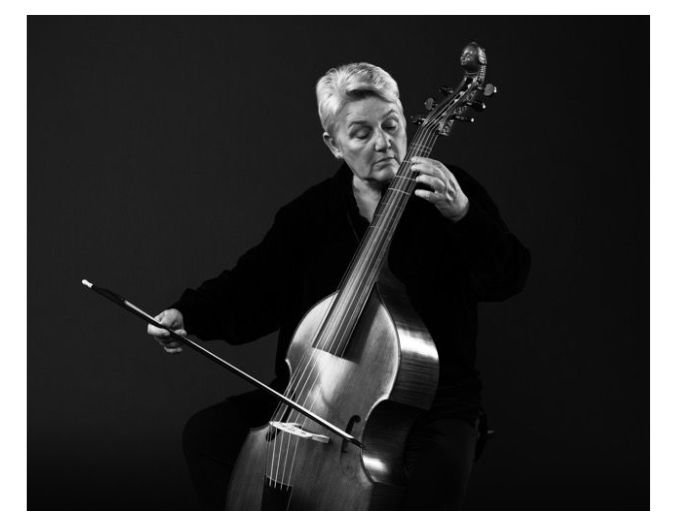
Mission and History
The Newberry Consort brings together singers and instrumentalists of the highest caliber to create historically informed performances of music from the Middle Ages, the Renaissance, the Baroque, and beyond. By integrating historical performance and research with contemporary themes and multimedia, we inspire audiences, musicians, and scholars by providing a window into earlier times and diverse cultures. The Consort continues to uplift Chicago’s early music community through mentorships, teaching, and engagement of local artists.
History of the Newberry Consort
Mary Springfels
The Newberry Consort, “Chicago’s gift to the early music world” (the Boston Globe) was the brainchild of two old friends, Howard Mayer Brown and Mary Springfels. Brown, who died in 1993, was a brilliant musicologist and a great supporter of early music performance and performers. Mary Springfels is a renowned performer on early stringed instruments and an avid scholar of music history. Brown had offered Springfels the directorship of the early music ensemble at the University of Chicago, and then discovered that the Newberry Library was considering adding a concert series to their public programs.
The Newberry Library, founded in 1887, is one of the few surviving American independent research libraries that remains free and open to the public. In the 1980s, visionary leaders decided to create an in-house early music series, loosely based on the model of the Folger Consort in Washington, DC. In 1981, Springfels was offered a residency at the Library with a mandate: she was to demonstrate, through first-rate musical performances, that a practicing musician might make imaginative use of the treasures housed in a unique and marvelously eccentric research library.
“Early Music from the Newberry Library”
The first few concert seasons were called “Early Music From the Newberry Library.” Springfels put together ensembles suited to a wide variety of repertoires. The artists included the singers Jeffrey Gall, Drew Minter, Paul Elliott, Judith Nelson, Julianne Baird, and Judith Malafronte. Guest instrumentalists were a veritable “who’s who” of outstanding early music virtuosi. Among them were David Hart, Wendy Gillespie, Sarah Cunningham, Margriet Tindemans, Marion Verbrueggen, Colin Tilney, David Schrader, Paul O’Dette, John Holloway, Stanley Ritchie, and David Douglass. Their efforts were a critical and popular success.
The Formation of The Consort
By 1986, the ensemble had coalesced into a core of musicians supplemented by invited guest artists. The first official incarnation of The Newberry Consort featured Drew Minter, David Hart, David Douglass, and Mary Springfels. Flutist David Hart died tragically in 1988 at the age of 37. Shortly after Hart’s death, mezzo-soprano Judith Malafronte and lutenist Kevin Mason became members of The Newberry Consort. Personnel gradually changed over the years, and by 2008, the membership consisted of Springfels, Minter, Douglass, and soprano Ellen Hargis. Under Springfels’s direction, The Consort performed unusual repertoires and explored early music in new ways. They experimented with medieval storytelling by setting Arthurian legends and bawdy Italian poetry to traditional recitation formulas, and they worked with the Newberry Library’s wonderful collection of Renaissance occult literature to recreate “magical” music. Another project featured music from the court of Queen Christina in Rome, followed by a screening of the Greta Garbo classic film, “Queen Christina.” With Minter, Springfels presented the Chicago debuts of Scarlatti’s dramatic oratorios “La Giuditta” and “Agar et Ismaele.” The Consort also mounted a Marco Polo show–a Silk Road project with early music–with pipa and erhu virtuosi Yang Wei and Betty Xiang, as well as percussionist Najib Bahri.
Touring
The Consort has toured actively from 1985 to the present. It has appeared at the prestigious Boston, Utrecht and Regensberg Early Music festivals, performed in Italy and England, and has been sought after at music festivals and series throughout the United States, Mexico and Canada.
Education
From the beginning, The Consort has been committed to educational outreach at the highest levels. Springfels and Newberry Library Renaissance Center director Mary Beth Rose designed an innovative National Endowment for the Humanities-sponsored summer program titled “Music as a Cultural Institution in the Middle Ages and Renaissance,” taught by Howard Mayer Brown, Benito Rivera, and Springfels. As part of this initiative, The Consort worked with twenty American colleges and universities over a period of five years, appearing in classrooms and giving concerts that engendered important discussions about music and the humanities throughout the country.
The Consort has also been the ensemble-in-residence at various universities throughout the Chicago area, where they perform their Chicago concert series on the campuses in addition to providing classroom visits, coaching, and direction for period ensembles and student projects. Residencies have included the University of Chicago and Northwestern University. The Consort is currently Ensemble-in-Residence at Roosevelt University, and has recently initiated a Young Artist Mentorship Program, which invites rising stars in the early music field to rehearse and perform in a world-class project with seasoned performers.
Recording
The Consort’s work soon drew the attention of Harmonia Mundi. Under that label, the ensemble made eight acclaimed recordings. Music for Severall Friends featured Drew Minter and the music of John Wilson. Ay Amor! was a pioneering recording of music by Juan Hidalgo, featuring Judith Malafronte as soloist. Il Solazzo explored the repertoire of early fifteenth-century Italy, and is still available under the new title Music for a Medieval Banquet. Wanderer’s Voices contrasted the musical and narrative personae of German and Galician poet-musicians, and I Have Seen the Map of the World featured the fifteenth-century Missa lo Mappa Mundi by Juan Cornago. The Golden Dream grew out of a concert commissioned by Wellesley College to accompany an exhibit of exquisite Dutch genre drawings. Most recently, The Consort recorded Juan de Lienas’s Vespers, featuring Baroque music for women’s voices and instruments.
Upon his death, Howard Mayer Brown left the Newberry Library the largest bequest it was to receive in the twentieth century. The Consort made three more recordings to honor his memory and his many musical interests: Villon to Rabelais built upon Brown’s early work with French theatrical songs, A Candle in the Dark honored his passion for the English Renaissance, and Puzzles and Perfect Beauty reflected Springfels’s and Brown’s shared fascination with late fourteenth-century music.
A New Chapter
After twenty-five years of program research, essays, lectures, and performances, Mary Springfels retired from the Library. Early Music America honored her with the 2007 Howard Mayer Brown Award for lifetime achievement in early music
Consort member David Douglass took over direction of the ensemble that same year. During the economic downturn of 2008, the Newberry Library was forced to end many public programs, including The Consort’s residency. Immediately, several loyal supporters of The Consort banded together to ensure the ensemble’s survival. Thanks to the pro bono efforts of these friends, The Consort became a not-for-profit group, and a small but determined Board of Directors was formed. After many years of hard work, The Consort boasts a strategic plan, a strong and devoted donor base, and a robust Board of Directors and continues its legacy as a treasure of the Chicago cultural scene.
In 2009, Douglass was joined by co-director Ellen Hargis. The duo continued the ensemble’s cutting-edge work in historical performance while simultaneously expanding into new territory. During this time, Douglass assembled, arranged, and directed a period-music score for Sarah Bernhardt’s silent film The Loves of Queen Elizabeth. Hargis researched, edited, and produced five programs of Mexican convent music drawn from a rare set of seventeenth-century choirbooks at the Newberry Library, creating the Lienas Vespers and the beloved A Mexican Christmas program in collaboration with Ensemble Ad-Hoc. Additional programs included a collaboration with banjo player Michael Miles and actor Paul Hecht to present a concert of music from Lincoln’s America that featured gut-strung banjo, historical piano, and readings from contemporary accounts. Their multimedia performances of the medieval Cantigas de Santa Maria were critically acclaimed in Chicago and toured throughout the United States. The Consort’s 30th Anniversary season included The Consort’s first-ever staged production, featuring a set of Elizabethan jigs and street theater skits performed in full costume with a Renaissance string band.
The Consort Today
When the coronavirus pandemic hit in 2020, The Consort again had to adapt. Under the skillful guidance of Douglass and Hargis and the steadfast support of the Board of Directors, The Newberry Consort launched “Great Performances,” a series of YouTube concerts featuring the best of The Consort’s live performances and audio-visual archives. Coupled with behind-the-scenes looks, The Consort kept audiences throughout the world engaged in their artistic work, building support and gaining new audiences even as the pandemic raged and live performance ground to a halt. In 2021-2022, The Consort triumphantly returned to the stage with A Mexican Christmas, Four Queens and a Joker, and Music Fit for the Medicis.
In 2022 Ellen Hargis and David Douglass retired as co-directors, turning the page on a collaborative relationship that began in The Consort’s earliest days under Howard Mayer Brown and Mary Springfels. In a fitting and well-earned tribute, Douglass and Hargis were honored by Early Music America with the 2022 Howard Mayer Brown Award for lifetime achievement in early music.
They passed the proverbial baton to Liza Malamut, a historical trombonist and scholar who assumed directorship of The Consort in 2022. Malamut shares her predecessors’ deep love and commitment to innovative performance and historical integrity, and will continue to present creative, multi-dimensional concerts that engage the highest caliber musicians from Chicago and beyond. Malamut looks forward to continuing to uplift and nurture Chicago’s early music scene, and is dedicated to continuing The Newberry Consort’s important legacy in historical performance, education, innovation, and love for the field of early music.

